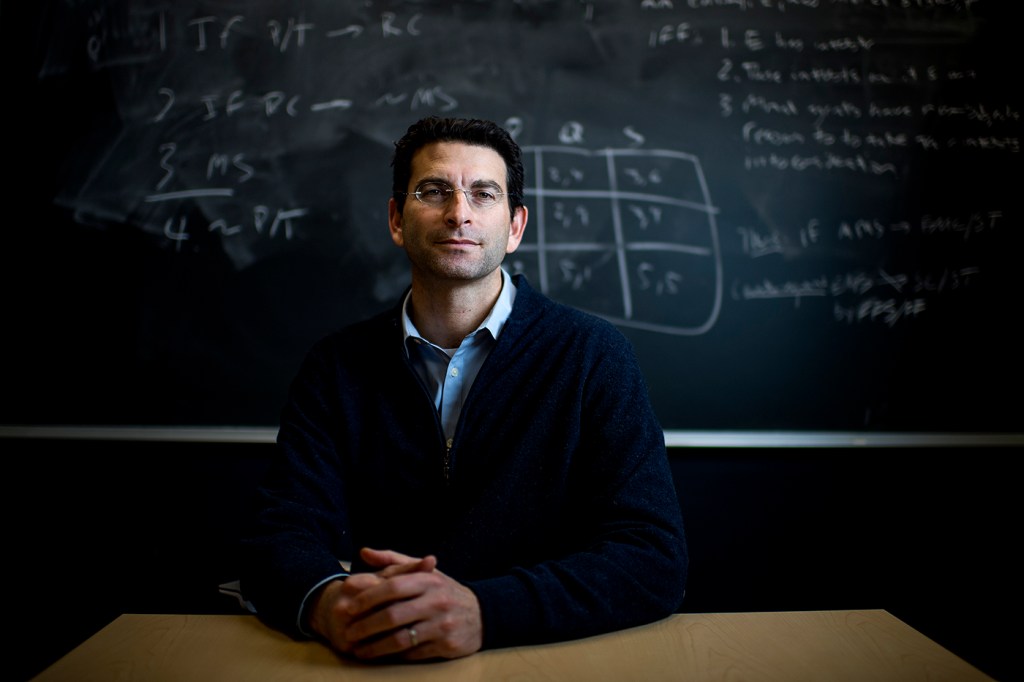CRISPR has been used to create genetically modified babies. Why are people so upset about it?

The Chinese researcher who announced that he has created the first genetically edited human infants has clearly violated scientific and ethical norms, said Northeastern ethicist Ronald Sandler.
“This is a pretty clear case of the unethical use of a powerful new technology,” said Sandler, a philosophy professor who directs the university’s Ethics Institute. “But the broader ethical issues about reproductive genetic engineering are extremely complex.”
Earlier this week, MIT Tech Review reported that a team of researchers at the Southern University of Science and Technology in China had been trying to use CRISPR-Cas9, a tool that enables scientists to target and edit specific sections of the genome, to deactivate a gene that makes people susceptible to HIV.
After the Associated Press reported that one of the couples in the trial had already successfully given birth to twin girls, the lead scientist, He Jiankui, quickly released five YouTube videos defending the work.
Members of the genetics community criticized the research, calling it “highly irresponsible” and “disgraceful.” And China suspended the research activities of He on Thursday, saying that his work appeared to violate Chinese law.
The research raises questions that range from the broadly philosophical (should we be altering the basic genetics of the human race?) to the specific and direct (were the parents given enough information to consent to the experiment?).
Sandler helped us break down a few of those issues.
Unnecessary risks
In his YouTube videos, the Chinese researcher, He, explained that the father of the twin girls was HIV positive. By making the girls immune to HIV, He said that he gave their father “a reason to live, a reason to work, a purpose.”
But the father’s sperm had already been “washed” (a technique approved by the Centers for Disease Control and Prevention) to ensure that the virus was not present, and there are other ways to prevent HIV from being transmitted to his children as they grow up.
This was not a medically-necessary procedure, and it introduces a lot of potential problems. The gene He targeted is involved in the human immune system. Researchers don’t know if changing it may affect the health of these girls later in their lives, or if the experiment could have caused unintentional, problematic mutations to the girls’ genomes.
“Given the other options, this introduces a very high level of risk, for possibly no patient benefit,” Sandler said. “That’s unethical in medical contexts.”
Informed consent
Doctors and researchers have a responsibility to make sure that patients know exactly what they’re agreeing to when they sign off on a medical procedure, Sandler said.
“Informed consent doesn’t just mean, ‘would you be okay with me doing this?’” Sandler said. “It means ensuring that the patient understands the risks, the benefits, the alternatives, the options, and makes a decision in an informed and uncoerced way.”
CRISPR has never been used to alter human embryos that are being brought to term. The first tests on viable human embryos only happened a few months ago. Scientists may not know enough about the risks to convey all the information to the parents.
“It might be, in principle, not possible to get informed consent on this right now, given the state of knowledge,” Sandler said.
Slow and steady wins the race
CRISPR was first used in adults in 2016 to try to treat an aggressive type of cancer. Using CRISPR to edit the genes in an embryo means that those edits will be reflected in every cell as the embryo divides, introducing the potential for much larger problems if things go wrong. Scientists have had the necessary technology to create a genetically-altered infant for years, but they wanted to make sure it was safe.
“There’s a lot that goes into the bioethics apparatus in the United States, including the regulation of experimentation on human subjects and the requirements in medical care,” Sandler said.
While laws vary internationally, there is a general consensus among the scientific community that research on human beings requires careful oversight. One bad experiment could turn public opinion against an entire field of research.
“The tools are powerful,” Sandler said. “It’s possible for people, both in and outside of well-regulated context, to engage in this sort of stuff. This is why a broad and strong framework for, and commitment to, ethics is so important.”





